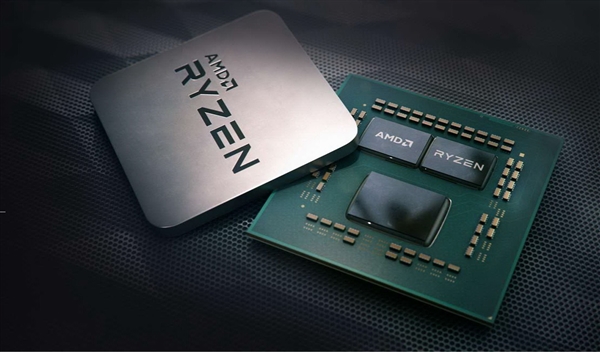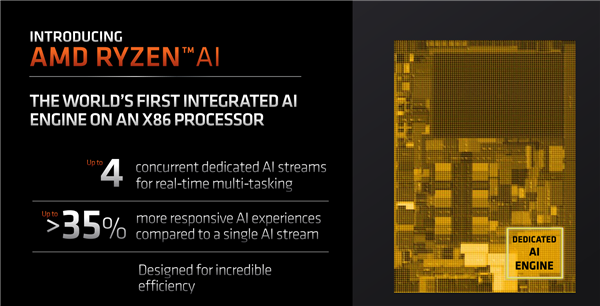Home >Technology peripherals >It Industry >AMD Ryzen 7000 family adds XDNA engine to help improve notebook AI performance
AMD Ryzen 7000 family adds XDNA engine to help improve notebook AI performance
- WBOYWBOYWBOYWBOYWBOYWBOYWBOYWBOYWBOYWBOYWBOYWBOYWBforward
- 2023-06-03 19:13:231566browse
News on June 1st, today at Computex Taipei, major manufacturers focused on artificial intelligence (AI) and regarded it as one of the key performance indicators of the new generation of processors. First, Intel took the lead in announcing the 14th generation Core processor Meteor The VPU unit on Lake is specially used to accelerate AI calculations. Subsequently, AMD also announced their own AI solution. Without waiting for the launch of the next generation product, they have added XDNA called Phoenix to the Ryzen 7000 family. AI acceleration engine.

According to the editor’s understanding, AMD demonstrated the ASUS Strix Scar equipped with the Ryzen 9 7940HS processor at the Taipei Computer Show 17 notebook, demonstrating the AI performance of this series of processors. Unlike Intel's previous demos, AMD's XDNA engine won't show up as a separate component in Task Manager, but it will behave similarly. The demonstration process mainly tested the performance of facial recognition.
Because AMD has not released specific comparative data, it is impossible to determine the speed advantage of XDNA relative to its competitors' products. AMD claims its XDNA engine is faster than the Neural Engine in Apple's M2 processor. In addition, although AMD did not release specific comparison data with Intel's 14th generation Core processor VPU unit, they said that no matter what Intel's products can do, AMD can do better.

This series of initiatives shows that AI performance is becoming more and more important in the processor field. Major manufacturers are constantly competing to launch solutions specifically designed to accelerate AI computing to meet users' needs for efficient AI applications. Future processors can achieve greater breakthroughs in AI performance because technology will continue to evolve.
The above is the detailed content of AMD Ryzen 7000 family adds XDNA engine to help improve notebook AI performance. For more information, please follow other related articles on the PHP Chinese website!
Related articles
See more- Apple's new iPhone 15 series released: Made in India for the first time and launched globally simultaneously
- Tesla Cybertruck electric pickup makes stunning debut at Texas race
- New car debuts tomorrow: Lodo L60 teaser image arouses heated discussion, and the 'prosperous' design concept attracts attention
- Ant Group cooperates with BNP Paribas to launch cross-border payment business, and European merchants can accept payments through 'Alipay+'
- There is a loud voice to 'ban the old man's music'. Experts: The rural new energy vehicle market has huge potential!

